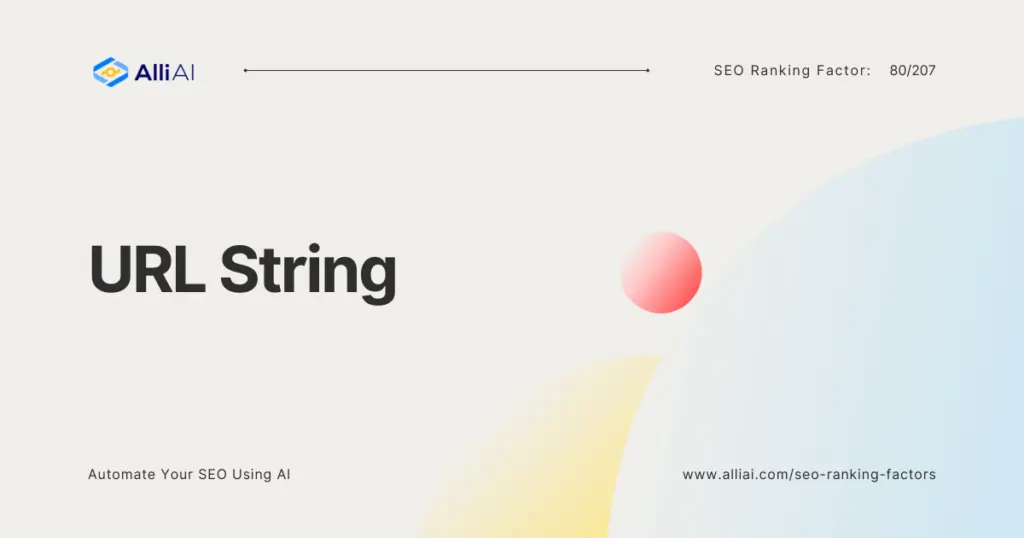What is URL String?
A URL (Uniform Resource Locator) string, often termed as a web address, is a reference to a web resource that specifies its location on a computer network and a mechanism for retrieving it. A URL is like a street address for a house on the Internet. Just as a physical address leads you to a specific home in a neighborhood, a URL directs your browser to a specific website or page online.
Why is URL String important in SEO?
URL strings play a pivotal role in SEO (Search Engine Optimization) for several reasons. They help search engines understand the content and context of a page, contributing significantly to a page’s ability to rank in search engine results pages (SERPs). A well-crafted URL can improve user experience, making it easier for visitors to understand and remember the web address. This increases the likelihood of direct visits and shares, both of which are beneficial for SEO.
How URL String affects SEO?
The structure and clarity of a URL can significantly affect a website’s SEO performance. Here are key ways it does so, supported by relevant stats where applicable:
1. Keyword Relevance: Including relevant keywords in the URL can help search engines understand what the page is about. Research by Backlinko has found that URLs are a minor ranking factor, meaning that having keyword-rich URLs can contribute to a page’s ability to rank for those keywords.
2. User Experience: A study by Microsoft Research showed that shorter URLs tend to get clicked on twice as much as longer URLs. This indicates that clear, concise URLs contribute to a better user experience, which search engines take into account when ranking sites.
3. Link Sharing: URLs that are descriptive and easy to read are more likely to be shared. A study by Marketing Sherpa found that URLs that are simple and descriptive are 2.5 times more likely to attract clicks. This increases the visibility of a website, contributing to its SEO.
4. Hierarchy and Structure: The structure of a URL can indicate the hierarchy of information on a site, making it easier for search engines to crawl the site and index pages accordingly. A logical structure with proper use of subdirectories can boost a site’s SEO.
FAQ
How long should my URLs be for the best SEO performance?
It’s advisable to keep URLs concise, ideally under 60 characters. Shorter URLs are easier to share and remember and tend to perform better in search results.
Should I include keywords in all of my URLs?
While including relevant keywords in your URLs can help with SEO, avoid overstuffing keywords. Ensure that your URLs accurately describe the page content in a concise and user-friendly manner.
Is it necessary to use hyphens in URLs instead of underscores?
Yes, it’s best practice to use hyphens (-) instead of underscores (_) in URLs. Search engines like Google treat hyphens as space, but underscores are not recognized in the same way, which can affect how your URL is interpreted.
Conclusion
The structure and clarity of a URL string are crucial elements of SEO that can significantly impact the visibility and ranking of a website. By understanding the importance of URL strings and implementing best practices in creating them – such as keeping URLs short and descriptive, including relevant keywords without stuffing, and using hyphens for readability – webmasters can improve their SEO performance. Remember, a well-crafted URL not only helps search engines understand and rank your pages better but also enhances the user experience, leading to higher engagement and conversions.






